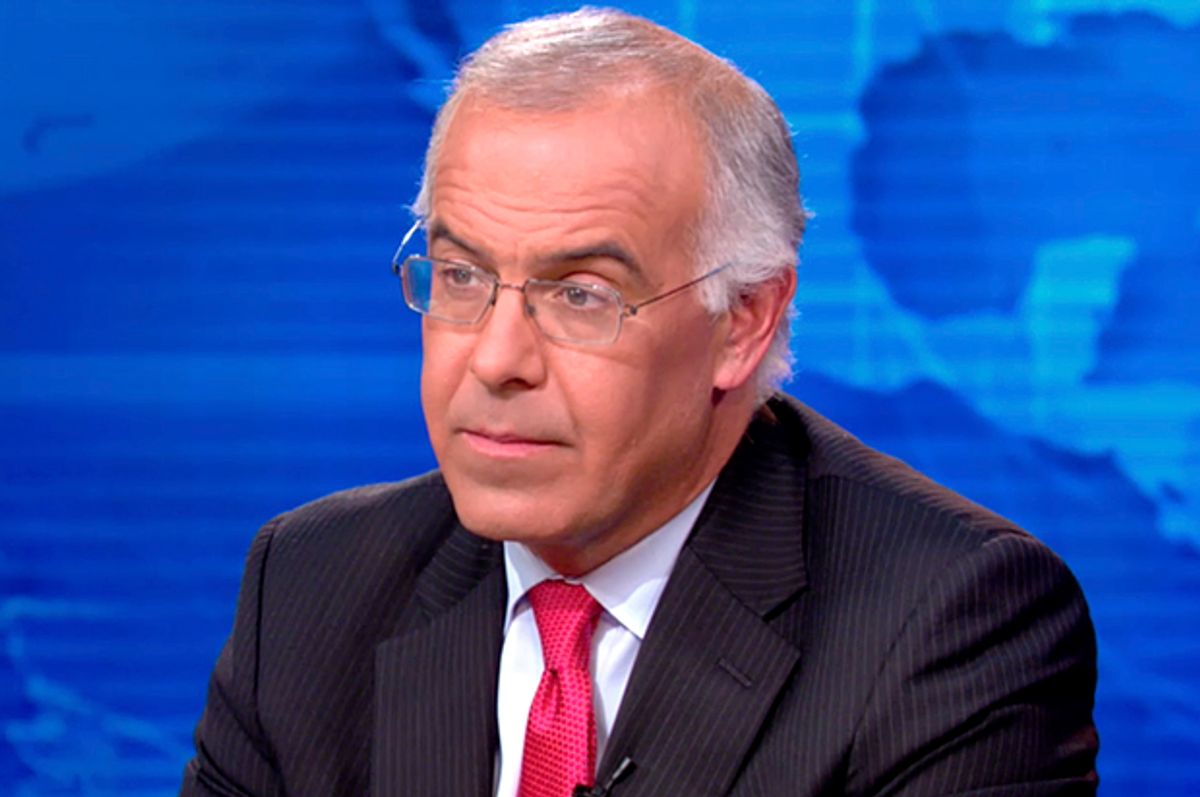This strategy is bad, first, for the country. America has always had tough partisan politics, but for most of its history, the system worked because it had leaders who could reframe debates, reorganize coalitions, build center-out alliances and reach compromises. Politics is broken today because those sorts of leaders have been replaced by highly polarizing, base-mobilizing politicians who hew to party orthodoxy, ignore the 38 percent of voters who identify as moderates and exacerbate partisanship and gridlock. If Clinton decides to be just another unimaginative base-mobilizing politician, she will make our broken politics even worse.
Brooks insists that voters, presumably not the ones Clinton hopes to win over, actually hate this strategy, explaining that "voters tend to like politicians who lead from a place of conviction, who care more about a cause than winning a demographic." Because who knows the 2016 electorate better than the all-knowing David Brooks? Readers are left to assume that Brooks' unhappiness with Clinton's appeal to all but "moderates" is short-hand for "but what about the white guys?" This is essentially the entire premise of a supposed but still unannounced White House run by former Democratic Virginia Senator Jim Webb, who has hinted at a 2016 campaign after expressing frustration that Democrats haven't focused more on "white, working people." (Meanwhile, Webb casts racial, ethnic, and sexual minorities as "interest groups.")
Brooks points to unpopularity of Obamacare to hold tight to his illusions of a center-right nation made only more progressive on social issues albeit not fiscal policy issues:
The mobilization strategy over-reads the progressive shift in the electorate. It’s true that voters have drifted left on social issues. But they have not drifted left on economic and fiscal issues, as the continued unpopularity of Obamacare makes clear. If Clinton comes across as a stereotypical big-spending, big-government Democrat, she will pay a huge cost in the Upper Midwest and the Sun Belt.
Brooks' concern for a nation divided by appeals to voters who aren't moderate white men comes on the heels of a New York Times report detailing the concerns of red state Democrats like West Virginia Senator Joe Manchin, who held up his rural states five electoral votes as the deciding factor in Al Gore's failure to secure the presidency in 2000. But as Salon's Joan Walsh pointed out, Clinton's strategy was tested in the last election when President Obama was reelected by winning 28 states and D.C. It worked out just fine. After all, no Democrat since 1976 has won the white vote and Obama's first election saw the highest percentage of the white vote captured by a Democrat since Jimmy Carter.

Shares